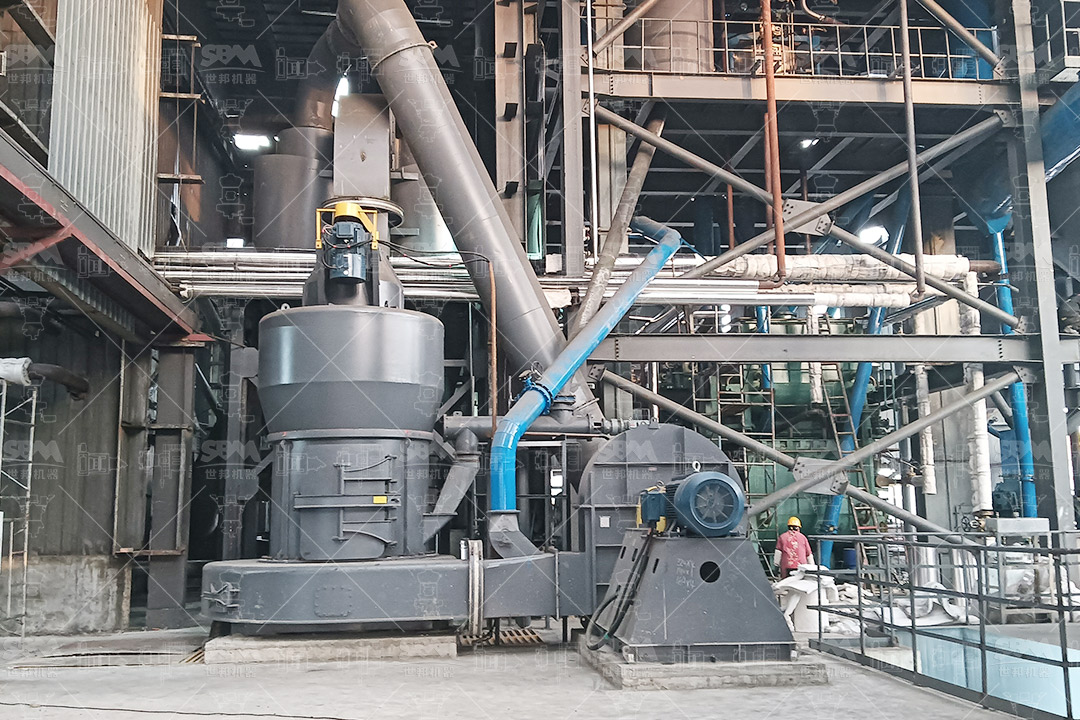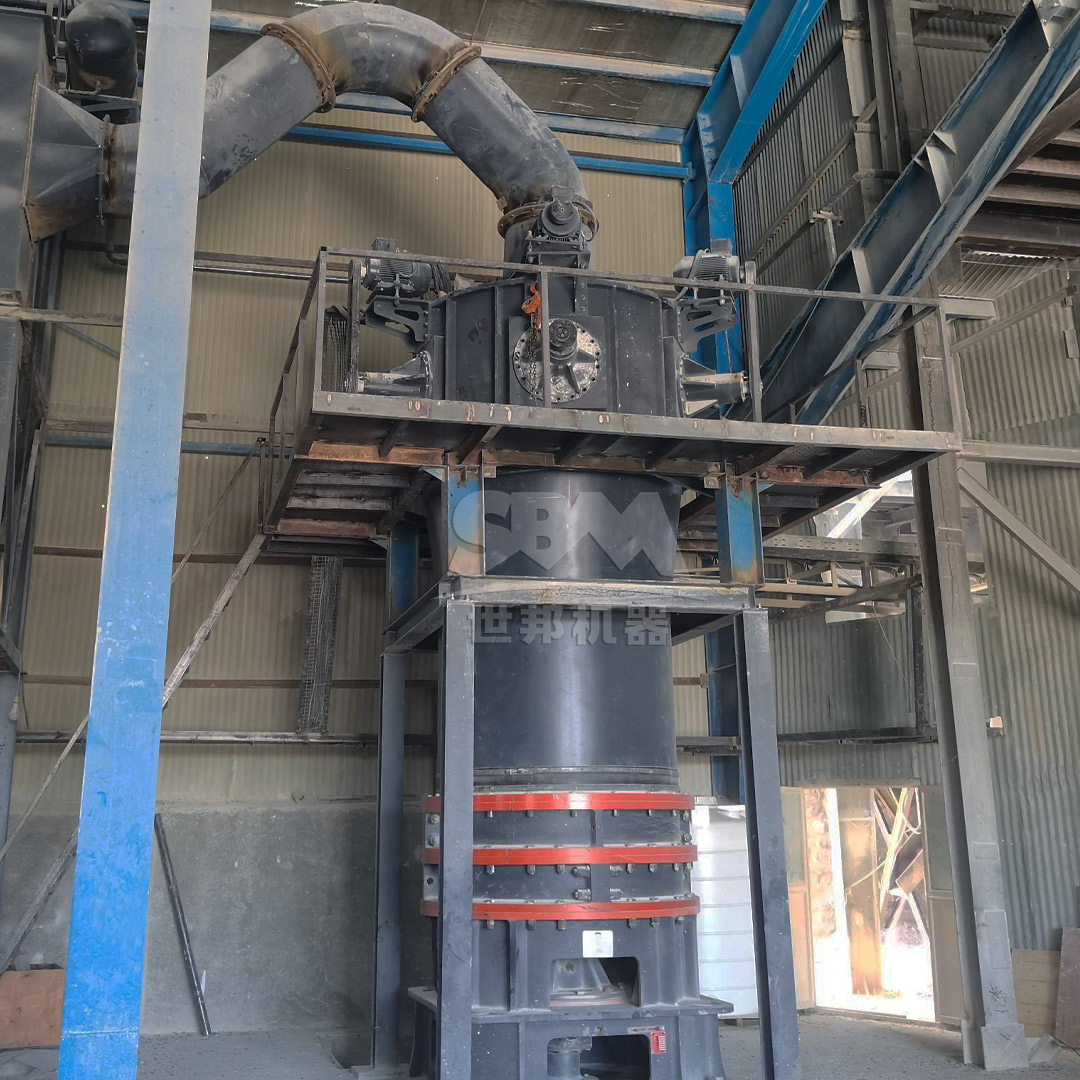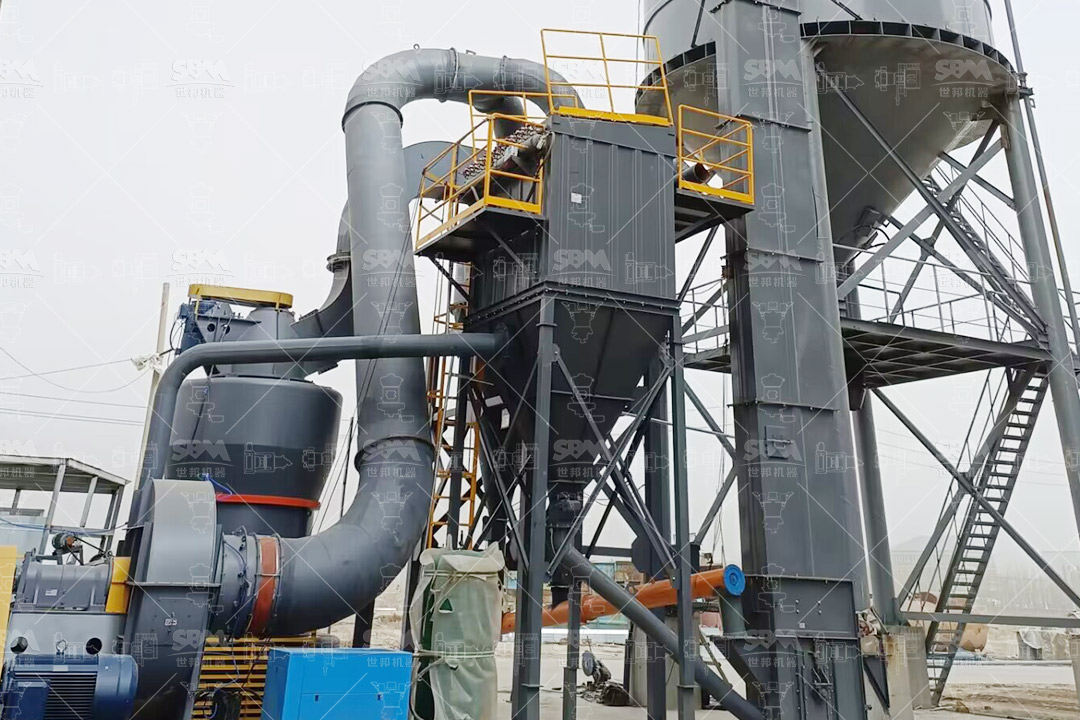Feldspar, one of the most abundant minerals in the Earth’s crust, serves as a crucial raw material in glass manufacturing. Its composition of alumina and alkali content makes it an essential fluxing agent that lowers the melting temperature of glass batches, reducing energy consumption while improving the final product’s durability, hardness, and resistance to chemical corrosion. The quality of feldspar powder directly impacts the transparency, strength, and overall quality of glass products, making the grinding process a critical step in the production chain.
Traditional grinding methods often fail to achieve the consistent particle size distribution required for high-quality glass manufacturing. Variations in feldspar particle size can lead to incomplete melting, formation of seeds and stones, and reduced mechanical properties in the final glass product. This is where advanced ultrafine grinding technology becomes indispensable for modern glass manufacturers seeking to enhance product quality and production efficiency.

The relationship between feldspar particle size and glass quality is well-established in industrial practice. Finely ground feldspar with uniform particle distribution offers several significant advantages in glass manufacturing:
When feldspar particles are reduced to ultrafine dimensions, the surface area increases exponentially, allowing for more efficient heat transfer during the melting process. This results in lower melting temperatures (typically reducing energy consumption by 15-20%) and shorter melting cycles, leading to increased production throughput. The uniform particle size distribution ensures consistent melting behavior throughout the batch, eliminating localized variations that can cause defects.
Ultrafine feldspar powder disperses more evenly throughout the glass matrix, preventing the formation of alumina-rich regions that can create weak points in the final product. This homogeneity translates to improved mechanical properties, including higher impact resistance and reduced internal stresses during cooling. Glass manufactured with precisely controlled feldspar particle size demonstrates up to 30% better structural integrity compared to conventionally processed materials.
The presence of oversized particles in feldspar feedstock represents one of the primary causes of defects in finished glass products. These particles may not fully dissolve during the melting process, creating seeds (small gas bubbles) or stones (unmelted crystalline inclusions) that compromise both the aesthetic appeal and functional performance of the glass. Ultrafine grinding technology effectively eliminates this problem by ensuring that 97% of particles fall within the target size range.
Modern feldspar processing demands grinding equipment capable of producing consistent ultrafine powders while maintaining operational efficiency and cost-effectiveness. Among the various technologies available, our SCM Ultrafine Mill stands out as an ideal solution for glass manufacturers seeking to enhance their product quality.
Our SCM Ultrafine Mill represents the pinnacle of grinding technology, specifically engineered to meet the exacting requirements of feldspar processing for glass manufacturing. With an output fineness range of 325-2500 mesh (D97≤5μm), this advanced mill system delivers the precise particle size control necessary for producing high-transparency, defect-free glass products.
The technological advantages of the SCM Ultrafine Mill directly address the specific challenges of feldspar processing:
| Technical Feature | Benefit for Glass Manufacturing |
|---|---|
| High-precision classification system | Eliminates coarse particles that cause defects in glass |
| Energy efficiency (30% lower consumption) | Reduces overall production costs for glass manufacturers |
| Advanced automatic control system | Maintains consistent particle size distribution batch after batch |
| Special wear-resistant materials | Prevents metallic contamination of feldspar powder |
The mill’s vertical turbine classification system ensures precise particle size切割, producing feldspar powder with unparalleled uniformity. This eliminates the risk of coarse particle contamination that can lead to defects in finished glass products. Furthermore, the intelligent control system automatically monitors and adjusts operational parameters in real-time, maintaining consistent product quality regardless of variations in raw material characteristics.

Beyond quality improvements, the SCM Ultrafine Mill delivers significant operational advantages for glass manufacturers. With capacity ranging from 0.5 to 25 tons per hour (depending on model selection), the system can be scaled to match production requirements of facilities of all sizes. The energy-efficient design reduces power consumption by approximately 30% compared to conventional grinding systems, contributing to lower production costs and enhanced sustainability.
The durable construction featuring special material roller and grinding rings extends component life by several times compared to conventional mills, reducing maintenance requirements and downtime. This reliability is particularly valuable in glass manufacturing, where production interruptions can be extremely costly due to the continuous nature of furnace operations.
For glass manufacturers requiring different fineness levels or processing larger quantities of feldspar, our MTW Series Trapezium Mill offers an excellent alternative or complementary solution. With an output range of 30-325 mesh, this robust grinding system excels in high-volume processing scenarios where extreme fineness is not the primary requirement.
The MTW Series incorporates several innovative features that benefit feldspar processing:
The combination-type shovel design significantly reduces maintenance costs by allowing individual replacement of worn components rather than entire assemblies. The curved design extends roller life by optimizing the contact pattern between grinding elements and material. For glass manufacturers, this translates to consistent performance over extended operational periods without degradation in product quality.
The curved air channel design minimizes energy losses during material transport, improving overall system efficiency. The high-strength protective plates safeguard critical surfaces from abrasion, maintaining optimal performance throughout the equipment’s service life. This efficient material handling is particularly important for feldspar, which can be challenging to transport due to its abrasive nature.
The cone gear integral transmission achieves remarkable 98% efficiency while saving installation space and reducing overall project costs. This compact, efficient design makes the MTW Series particularly suitable for facilities with space constraints or those looking to maximize production capacity within existing footprints.
| Model | Processing Capacity (t/h) | Main Motor Power (kW) | Output Fineness (mesh) | Recommended Application |
|---|---|---|---|---|
| MTW110 | 3-9 | 55 | 30-325 | Small to medium glass production |
| MTW138Z | 6-17 | 90 | 30-325 | Medium scale container glass |
| MTW175G | 9.5-25 | 160 | 30-325 | Flat glass manufacturing |
| MTW215G | 15-45 | 280 | 30-325 | Large-scale specialty glass |
The implementation of advanced feldspar grinding technology has demonstrated measurable quality improvements across various glass manufacturing sectors. One prominent flat glass manufacturer documented their experience after upgrading from conventional ball mills to our SCM Ultrafine Mill system:
The manufacturer struggled with inconsistent glass quality, particularly variations in transparency and the occasional presence of visual defects. Their quality control department reported that approximately 3.2% of production required downgrading or rejection due to feldspar-related issues. Energy consumption for the melting process averaged 1,450 kWh per ton of glass produced.
Following the installation of an SCM1000 model specifically dedicated to feldspar grinding, the manufacturer observed immediate improvements. Defect rates related to feldspar quality dropped to 0.4%, representing an 87.5% reduction in quality issues. Additionally, the more consistent and finer feldspar powder allowed them to reduce melting temperatures by approximately 35°C, resulting in energy savings of 18% (approximately 260 kWh per ton).
The superior particle size distribution achieved by the SCM Ultrafine Mill eliminated the problem of incomplete melting, resulting in glass products with enhanced optical properties and mechanical strength. The manufacturer reported that their products now consistently meet the stringent requirements for architectural and automotive applications, opening new market opportunities.

While the quality benefits of ultrafine feldspar grinding are clear, manufacturers must also consider the economic implications of adopting advanced grinding technology. Our analysis demonstrates that the investment in precision grinding equipment typically delivers a compelling return through multiple channels:
The improved consistency and quality of glass production directly translate to lower rejection rates and reduced material waste. For a medium-sized glass manufacturer producing 200 tons per day, even a 2% reduction in waste can represent annual savings exceeding $150,000, depending on product mix and market pricing.
The SCM Ultrafine Mill’s energy-efficient design not only reduces grinding costs but also enables energy savings in downstream processes. The finer, more uniform feldspar powder melts more efficiently, allowing manufacturers to lower furnace temperatures or increase throughput without additional energy input. These secondary energy savings often exceed the direct power reduction in the grinding process itself.
Glass products manufactured with precisely controlled raw materials typically command price premiums in the market, particularly in segments such as architectural glass, automotive glass, and specialty containers. The enhanced optical and mechanical properties achieved through advanced feldspar processing enable manufacturers to access higher-value market segments with improved profit margins.
The glass industry continues to evolve, with emerging trends placing even greater emphasis on raw material quality and processing precision. Several developments are particularly relevant to feldspar grinding technology:
The growing market for ultra-thin glass used in displays, touchscreens, and flexible electronics demands unprecedented raw material quality. These applications require feldspar powders with maximum particle sizes below 3μm and extremely narrow size distributions to prevent defects in glass layers that may be only 0.1mm thick.
Glass manufacturers face increasing pressure to reduce their environmental footprint through lower energy consumption and reduced waste. Advanced grinding technology supports these initiatives by enabling more efficient melting processes and higher production yields. The SCM Ultrafine Mill’s energy-efficient design and minimal waste generation align perfectly with industry sustainability goals.
The movement toward smart manufacturing requires grinding equipment capable of seamless integration with digital control systems. Our grinding systems feature advanced automation and monitoring capabilities that support Industry 4.0 implementation, providing real-time data on operational parameters and product quality for optimized production management.
The relationship between feldspar particle characteristics and glass quality is undeniable, making investment in advanced grinding technology a strategic imperative for competitive glass manufacturers. Our SCM Ultrafine Mill and MTW Series Trapezium Mill provide comprehensive solutions tailored to the specific requirements of the glass industry, delivering both quality enhancements and operational efficiencies.
By adopting precision grinding technology, glass manufacturers can achieve multiple competitive advantages: superior product quality that commands market premiums, reduced production costs through energy efficiency and lower waste, and enhanced flexibility to meet evolving customer requirements. As glass applications become more demanding and sustainability concerns grow increasingly important, the role of advanced feldspar processing will only expand in significance.
The documented experiences of forward-thinking manufacturers demonstrate that the transition to advanced grinding systems represents not merely an equipment upgrade, but a fundamental enhancement of manufacturing capability that delivers lasting value throughout the production chain. In an increasingly competitive global market, such technological advantages often make the difference between industry leadership and marginalization.